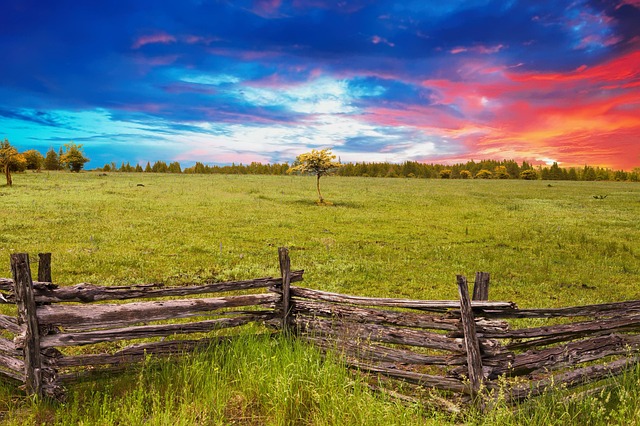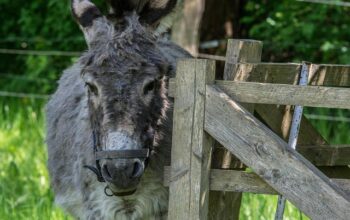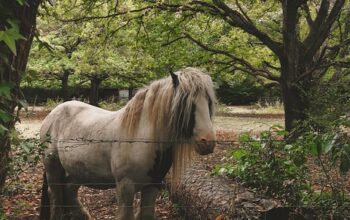Farm fences are crucial for defining agricultural spaces and managing livestock. Ontario farmers have a variety of durable fence solutions, from traditional wood to modern steel and vinyl options, tailored to their specific needs like chain link for visibility, high-tension wire for wildlife control, or electric fencing. Selection factors include material, farm size, layout, maintenance requirements, and budget. Strategic planning, professional installation, and regular maintenance ensure fence longevity and safety.
Ontario farms, facing diverse challenges from wildlife to property boundaries, require durable farm fencing solutions. This article explores the importance of robust fencing in the province’s agricultural landscape, delving into common types such as vinyl, wood, and chain link, while offering insights on choosing the right fit based on specific needs. We guide farmers through implementation and maintenance tips to ensure their fences stand strong against time and elements. Discover how investing in quality farm fencing can enhance Ontario’s farming sustainability.
- Understanding the Need for Durable Farm Fencing in Ontario
- Common Types of Farm Fence Solutions Available
- Factors to Consider When Choosing a Farm Fence
- Implementing and Maintaining Your Selected Farm Fence
Understanding the Need for Durable Farm Fencing in Ontario
Common Types of Farm Fence Solutions Available
Farmers in Ontario have a variety of durable fence solutions at their disposal to protect their crops and livestock, enhancing overall farm management and efficiency. The most common types include chain link fences, widely recognized for their strength and versatility, ideal for encompassing large areas and providing clear visibility. Wooden post-and-rail fences are another popular choice, offering a traditional aesthetic appeal while ensuring effective containment of animals. These fences can be constructed from various woods, each with its unique durability and color characteristics.
For more specialized needs, farmers might opt for high-tension wire fences, particularly useful for keeping out larger wildlife or managing specific livestock movements. These systems provide superior strength and flexibility in installation. Additionally, electric fencing has gained popularity due to its effectiveness in controlling animals without the need for physical barriers, making it a preferred choice for many modern farms across Ontario.
Factors to Consider When Choosing a Farm Fence
When selecting a farm fence, several key factors come into play. One of the primary considerations is the type of fencing material, such as wood, vinyl, or chain link, each offering distinct benefits and longevity in varying weather conditions. The size and layout of your farm are also crucial; fences must be robust enough to contain livestock while aligning with your property lines. Additionally, aesthetic preferences play a role, as different fence styles cater to diverse rural landscapes.
Another important aspect is maintenance and durability. Low-maintenance options like vinyl or treated wood require less upkeep, ensuring long-lasting protection against the elements. Meanwhile, budget allocation is essential, with various fencing solutions available across Ontario farms, ranging from cost-effective to premium options, catering to diverse financial considerations.
Implementing and Maintaining Your Selected Farm Fence
Implementing your chosen farm fence requires careful planning and preparation. Start by assessing your land’s unique needs—consider factors like animal behavior, terrain, and desired aesthetic. Each farm fence type offers distinct advantages; for instance, high-tensile wire fences are excellent for containing livestock due to their strength and low maintenance, while wooden post-and-rail fences provide a classic look and added privacy. Once selected, proper installation ensures longevity. Engage experienced professionals who can ensure the fence lines up correctly, posts are securely placed, and all components meet safety standards.
Regular maintenance is crucial for preserving your farm fence’s durability. This includes inspecting it periodically for any signs of damage or wear, such as loose connections, bent posts, or broken rails. Promptly addressing these issues will prevent minor problems from escalating. Cleaning the fence regularly to remove debris and overgrowth not only improves aesthetics but also guards against rot and corrosion. Many farm owners find that routine checks and simple repairs can significantly extend the life of their fencing system, ensuring it continues to serve as an effective boundary for years to come.
Ontario farmers now have access to a range of durable farm fencing solutions, ensuring their valuable livestock and crops are securely protected. By understanding the specific needs of their operations, choosing the right type of farm fence, and implementing effective maintenance practices, farmers can invest in a long-lasting and efficient barrier that enhances overall farm management. These measures contribute to the sustainability and productivity of Ontario’s agricultural landscape.




